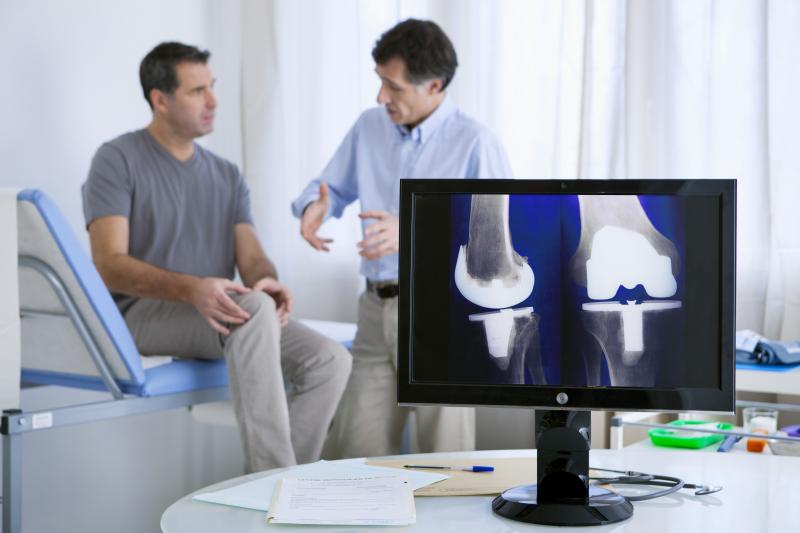
Loss of cartilage thickness affects knee pain by a small degree, and this association is partly mediated by worsening synovitis, according to a study.
The study used data from the Osteoarthritis Initiative and included 600 adults (mean age, 62 years; 59 percent female; mean body mass index, 31 kg/m2) with or at risk of symptomatic knee osteoarthritis (OA) who were followed for 36 months. All participants underwent knee magnetic resonance imaging (MRI) at baseline, 12 months and 24 months for quantitative and semiquantitative measures of OA structural features.
About half of the population (51 percent) had mid-range OA by Kellgren and Lawrence Grade. The mean Western Ontario and McMaster Universities Osteoarthritis Index (WOMAC) pain score at baseline averaged 2.4, increasing slightly by 0.62 and 0.93 by months 24 and 36, respectively.
Over 24 months, cartilage thinned by 0.10 mm in the medial tibiofemoral compartment, synovitis score increased (worsened) by 0.23, and bone marrow lesion (BML) size summary score decreased by −0.45.
Cartilage thickness loss was significantly associated with a small degree of worsening in knee pain, such that a loss of 0.1 mm over 2 years translated to an increase of 0.32 in WOMAC pain (scale 0–20). This association was mediated by synovitis change but not by BML change.
The finding that cartilage loss has such a tiny effect on pain indicate that demonstrating that chondroprotective treatment reduces knee pain will be extremely challenging and is perhaps unachievable, the researchers said.